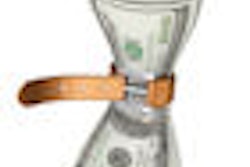
Millions of indigent patients will lose access to dental care starting July 1 unless California restores its Medicaid dental program for adults.
Only a handful of states provide dental benefits to adults under Medicaid. California Gov. Arnold Schwarzenegger proposed axing the program and the Legislature agreed as part of its efforts to close the state's $41.6 billion budget deficit.
“In the long run, they won't save money.”
— Wynne Grossman, executive
director, Dental Health Foundation
The decision may be penny-wise, but it's pound-foolish, said Wynne Grossman, executive director of the nonprofit Dental Health Foundation. "In the long run, they won't save money."
By trimming $110 million from its budget by cutting the Medicaid adult dental program, the state loses an additional $140 million in benefits provided by the federal government, she pointed out.
The program, known as Denti-Cal, also pays for a lot of preventive care. Untreated caries, for example, can lead to infections that publicly funded emergency room doctors will likely have to treat at a much higher cost in the absence of Denti-Cal.
And the cuts will have a ripple effect, Grossman added. "We know from other studies done on Medicaid that when adults don't have benefits, they are three times less likely to bring kids in."
So why target Denti-Cal?
Every state designs its own Medicaid program. The federal government pays part of the cost, but in return it requires the state programs to cover most routine healthcare procedures -- with a few exceptions. "Dentistry, optometry, and psychology are not mandated by the federal government," said H.D. Palmer, deputy director for external affairs of the California Department of Finance. "So in terms of the rationale, that's how it was determined."
Palmer acknowledged that eliminating Denti-Cal could lead to higher costs in the long term. But he argued that there were no happy alternatives. "The reductions will clearly have severe consequences," he said. "Similar arguments could be made on the revenue side -- many people are saying in a recession you don't want to raise taxes."
Advocates of Denti-Cal had hoped that the state could shave off a bit of the $10 billion in federal stimulus funds to restore adult dental benefits. But strings attached to the money by the federal government prevented that, Palmer said.
So barring a change of heart by the governor and Legislature, around 3 million adults in California will lose their eligibility for exams, restorations, root canal therapy, scaling, and planing, along with dozens of other procedures the state was covering.
The two dentists in the California legislature, Sen. Sam Aanestad, D.D.S., and Assemblyman Bill Emmerson, D.D.S., both Republicans, are among legislators fighting to save the program, Grossman said.
The last chance of saving adult Denti-Cal will come next month when the legislature takes another look at the budget during a process called the May Revise. Dr. Aanestad has suggested cuts in prison healthcare among other alternatives to eliminating the program. But state revenues have continued to fall since the last budget was negotiated, raising the odds against saving it.
"We're looking at a hole of [another] $22 billion," said Linda Halderman, M.D., senior policy advisor to Dr. Aanestad. "It's hard to believe the same folks who voted to cut the program are going to turn around and support it."
Copyright © 2009 DrBicuspid.com



















